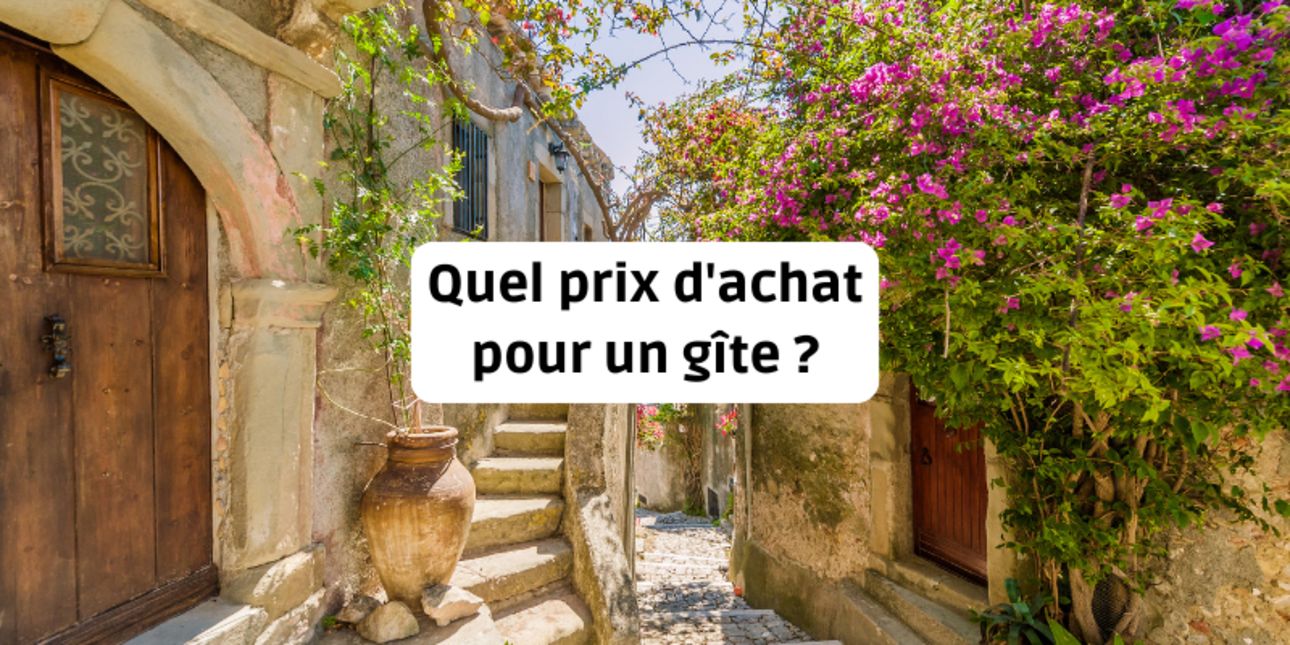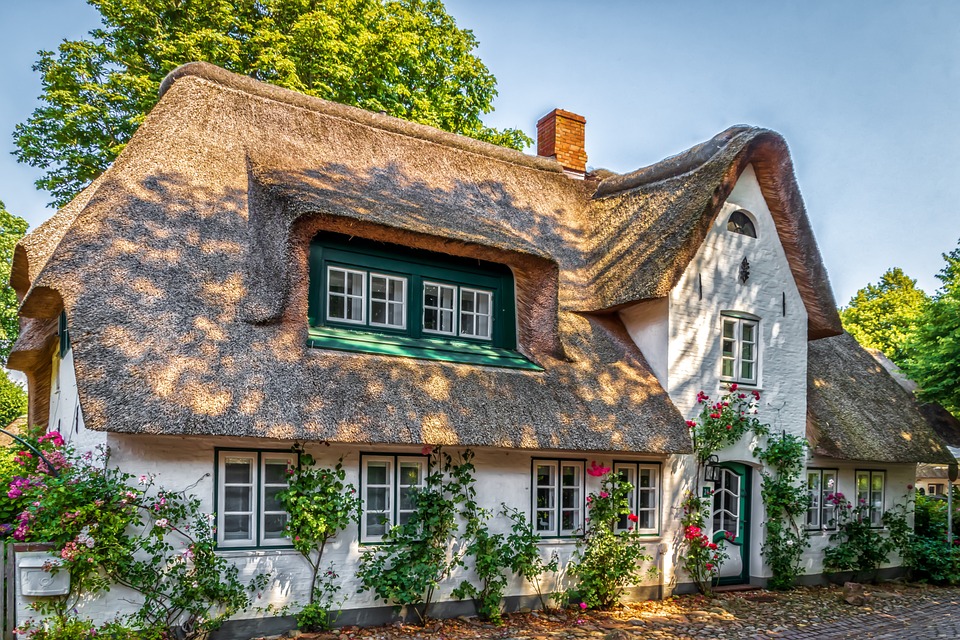
The purchase of a gîte in France is an exciting business that can offer an excellent investment opportunity in the tourism and property sector. Indeed, the creation of a gîte, whether for seasonal rental or as a second home, is an attractive and lucrative project. However, to succeed in this field, it is essential to understand the costs and associated factors before embarking on this future project. The gîte market is diverse, with prices fluctuating according to many factors such as location, size and facilities on offer.
This article explores the different aspects that influence the purchase price of a gîte and provides advice on how to make a wise investment in gîtes and guest houses.
Location is one of the most important factors in determining the purchase price of a gîte. Visit gîtes located in regions tourist Popular regions, such as Provence, the Dordogne or the Côte d'Azur, tend to be more expensive due to high demand and potential profitability. On the other hand, gîtes in less popular or rural areas can be more affordable. The choice of location should therefore be carefully considered to guarantee the profitability of the business and the best possible return on investment.  A well-located gîte can attract a large number of customers and ensure a good return on investment, especially in high season.
A well-located gîte can attract a large number of customers and ensure a good return on investment, especially in high season.
The size of the gîte and its capacity also influence its property price. A large property that can accommodate several families or groups will generally have a higher purchase price than a small gîte intended for a single family.
However, on a per m² basis, the price will always be lower for larger properties than for smaller ones.
For example, a property with several units and a large capacity can sell for between €365,000 and over €1,850,000, depending on the facilities and location. So it's essential to plan your budget in line with the desired size, occupancy and accommodation requirements. The number of rooms on offer, as well as their quality, play a crucial role in determining the price and attractiveness of the gîte.
The general condition of the gîte and the facilities available play a crucial role in determining the price. Buying a recently renovated or well-maintained gîte, with modern facilities such as a swimming pool or spa, will be more expensive than a gîte that needs renovation. High-end properties with luxury facilities can fetch very high prices. The budget for renovations and maintenance must therefore be well prepared in the financing plan. It is also essential to factor in the costs associated with regular maintenance and improvements to the facilities to maintain the value of the gîte and increase its appeal to potential tenants. Keeping your offer up to date is key to staying competitive.
The income potential of a gîte is an important factor influencing its price. Gîtes located in attractive tourist areas with a long tourist season can generate substantial income, justifying a higher purchase price. For example, a well-located gîte can generate an annual turnover of €85,000 over an eight-month opening period. Assessing revenue potential is essential to ensure that the project is profitable. Accurately calculating expected income, taking into account seasonality, frequency of overnight stays and average length of stay, can help determine whether the investment is viable. It is also important to analyse demand and adapt the offer to meet customer expectations.
Here are some examples of prices for different types of gîtes unique holiday destinations in France :
Before buying a gîte, it's important to set a clear budget and understand the financing options available. Mortgages can be an option, but it's important to take into account additional costs such as notary fees, taxes and any necessary renovations. Interest rates can vary, so it's worth comparing credit offers from different banks to get the best terms. With the right finance in place, you can effectively manage the costs of buying a home, as well as any unforeseen expenses. A well-prepared budget will help you to anticipate additional charges and manage costs optimally. The initial contribution, as well as the expected salary for maintenance and management, must be taken into account in the financial plan. In addition, the amount of credit, if any, should be adjusted in line with the potential income from the rental activity to ensure the viability of the project.
Mortgages can be an option, but it's important to take into account additional costs such as notary fees, taxes and any necessary renovations. Interest rates can vary, so it's worth comparing credit offers from different banks to get the best terms. With the right finance in place, you can effectively manage the costs of buying a home, as well as any unforeseen expenses. A well-prepared budget will help you to anticipate additional charges and manage costs optimally. The initial contribution, as well as the expected salary for maintenance and management, must be taken into account in the financial plan. In addition, the amount of credit, if any, should be adjusted in line with the potential income from the rental activity to ensure the viability of the project.
Carrying out a thorough market study is essential to assess the potential profitability of the gîte. This includes analysing the local competition, tourist demand in the area, and the rental rates charged. A good analysis of demand means that you can choose a gîte that is suited to customer expectations and maximise profitability. Booking websites, specialist guides and people's opinions can provide valuable information about the popularity of a gîte. It is also important to take account of social networks and reviews to get the full picture. When it comes to rental investments, regular analysis of the economic and tourist environment is necessary to adjust your commercial and pricing strategy.
Some regions offer grants to encourage the development of gîtes, particularly for renovation work. It is advisable to check with your local authority to find out what grants are available. These grants can reduce renovation costs and improve the return on your investment. By building relationships with local players, you may also be able to obtain additional benefits. The possibility of obtaining public or private funding for the renovation or promotion of the gîte is a point to consider in the financial plan.
Running a business includes regular maintenance and customer service. Good management helps to maintain the quality of the accommodation and ensure customer satisfaction. Management and maintenance costs should be factored into the overall budget to avoid financial surprises. Hiring qualified staff or using a professional management service can also contribute to effective management. A management professional can help you optimise operations and improve the quality of the guest service. The time spent on day-to-day management also needs to be taken into account. By using modern management tools, you can prepare and optimise day-to-day aspects to ensure smooth operations. Using software dedicated to managing gîtes and chambres d'hôtes can help optimise bookings and promote your establishment.
Buying a self-catering property can be an excellent investment opportunity, but it's essential to understand the various factors that influence price and profitability. By considering location, size, condition and income potential, and by carrying out thorough market research, you can make an informed choice that will maximise your chances of success. Don't forget to carry out a thorough market study and explore all the financing and support options available to optimise your investment and ensure the success of your project. By following these criteria and adopting the right strategy, you'll maximise your chances of success in this seasonal adventure.
To ensure the success of your purchase, it is also essential to be well informed about the legal and regulatory aspects of acquiring and managing a gîte. Make sure you comply with all the rules in force, and be prepared to manage the various aspects of the property effectively to make your investment a profitable and sustainable business. Every stage of the purchasing process must be carefully prepared to avoid unforeseen circumstances and ensure effective long-term management. Being a gîte owner also means taking into account the associated charges and obligations, such as insurance and regulatory aspects, to ensure good management and optimum performance.